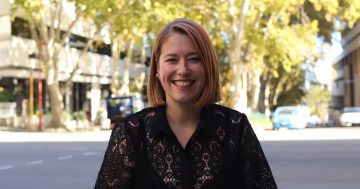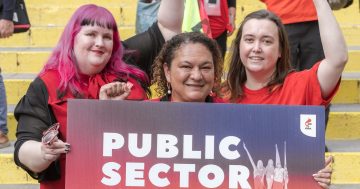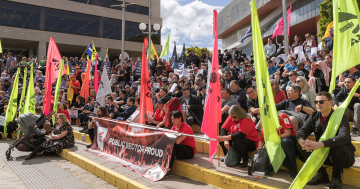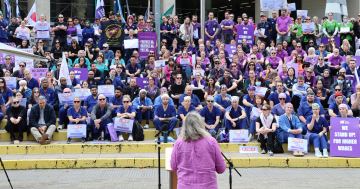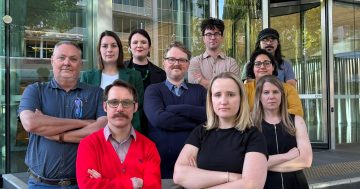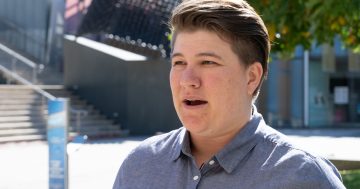
With her mum from an island off the northern coast of PNG and dad from the Hunter Valley, Melanie Bray says “knowing that you’re different” has helped her “see people for the complexity that they are”. Photo: CPSU/CSA.
It’s been a massive year of wins for WA’s public sector, a great deal of which can be credited to its new union leader Melanie Bray.
Last week the Community and Public Sector Union/Civil Service Association (CPSU/CSA) council appointed Ms Bray to the role of general secretary, after her former boss Rikki Hendon left to become UnionsWA secretary.
Identifying herself as a “public sector tragic”, the new secretary told Region she was keen to get started on “bedding those wins and making sure that we see their effect in the sector”. One of the union’s key victories was locking in a new agreement that not only afforded WA public servants a huge 12.5 per cent pay rise, but “would begin to undo the damage of years of restrictive wage caps”.
“Our members fought really damn hard to get the cap removed,” says Ms Bray. “There is effectively, very little to no bargaining that’s able to be achieved when there’s a cap on.”
While there’s a little bit of retraining to do across the sector about what genuine bargaining “really looks like and how to do it”, the secretary says “at least now we’re in a space where we can do that”.
After 11 years as a client assistant for the state’s Disability Services Commission, Ms Bray joined the CPSU/CSA in 2008 as an organiser and was made branch assistant secretary a decade later.
Though none of her family has been involved in the movement, she was influenced by her colleagues to get involved amid a “protracted and intense” bargaining round for social trainers and client assistance that ended up securing “significant reclassifications”.
“I got to see some brilliant unionists who came before me and thought, ‘Wow, like we can actually affect change this way.'”
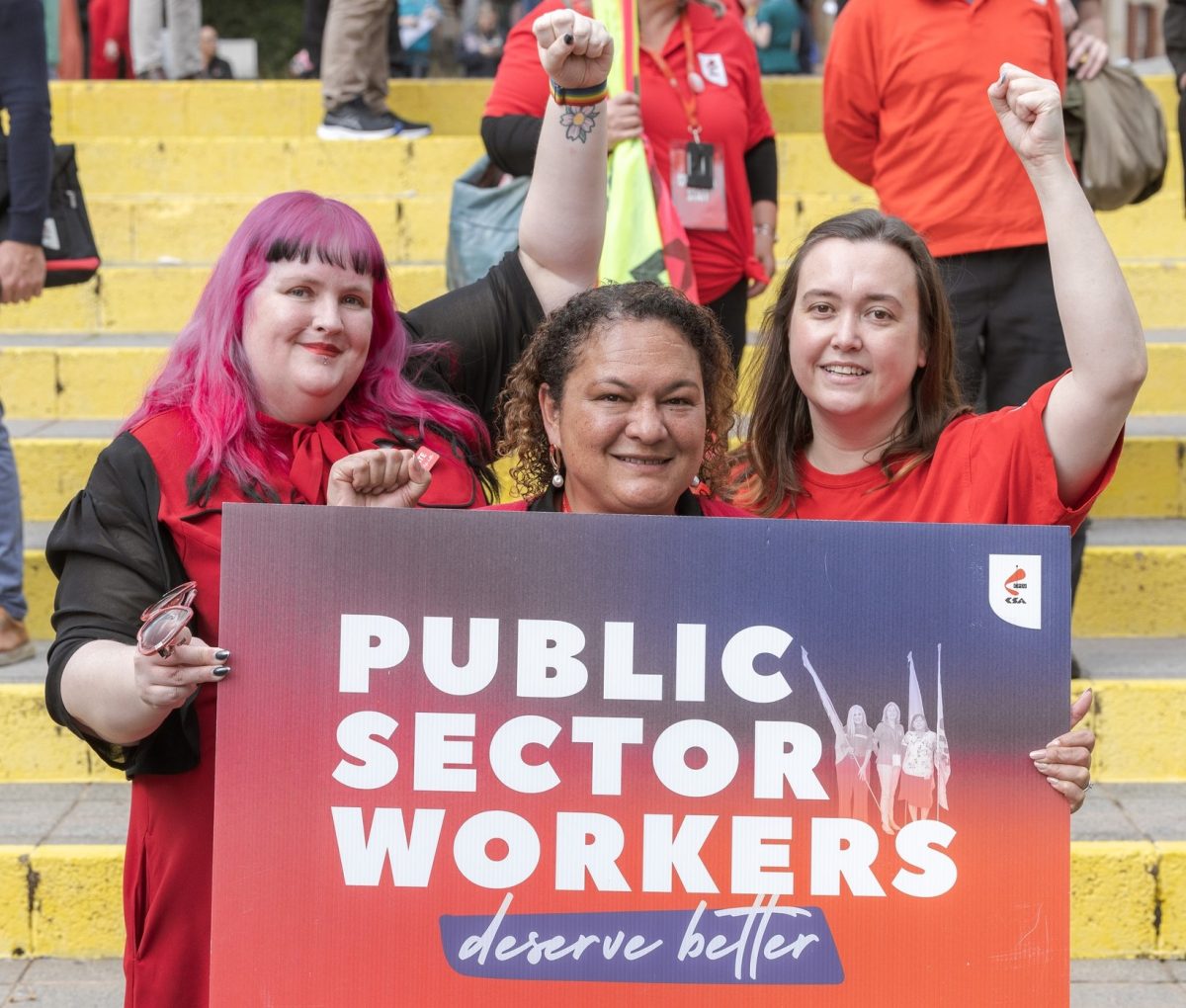
In August as then-acting branch secretary, Melanie Bray joined more than 500 public sector workers from across WA in a wages rally. Photo: CPSU/CSA.
One of the highlights in her most recent career was in achieving a significant pay restructure and resourcing for residential colleges, which saw instant pay rises of up to $30,000 in 2020.
“That really changed the working lives of people who were, in my view, effectively being indentured to their job – which was just awful,” says Ms Bray.
“You don’t really think that those things happen in a modern public service, but they can do and they still need to be challenged.”
Another area where she’s been instrumental in member-led outcomes is youth justice.
Last year the CPSU/CSA secured a salary reclassification and major safety outcomes for youth custodial officers, but Ms Bray says their work isn’t done yet.
“We’ll be keeping a close eye on the second facility at Banksia Hill Detention Centre to see what that looks like and how it plays out,” she says.
“There’s also some burning issues that we’re working on at the moment quite closely around child protection and regional entitlements.”
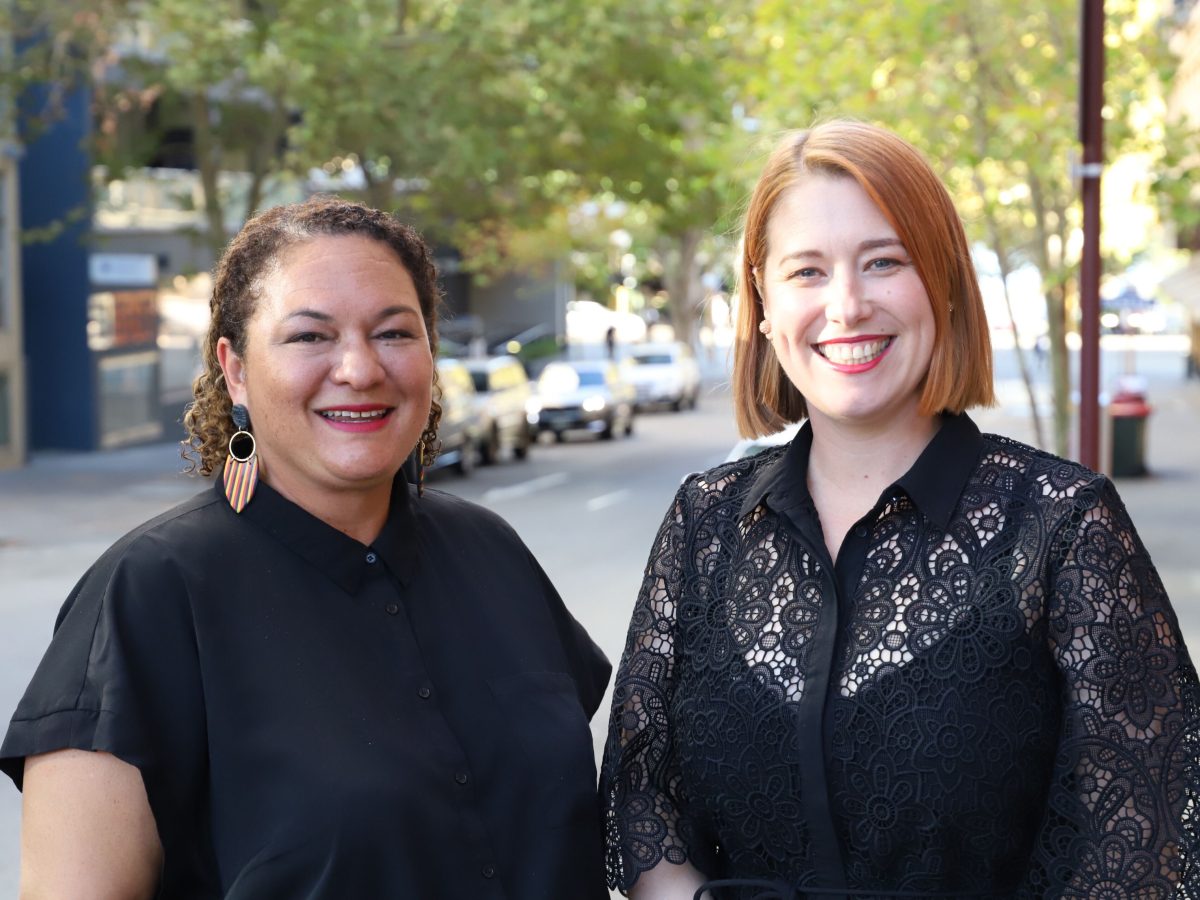
Melanie Bray expects to be working closely with Rikki Hendon in their new roles, as each of their unions form part of WA’s Public Sector Alliance. Photo: CPSU/CSA.
On top of making sure that public servants across their “very, very big state” receive entitlements to make sure living and working in the regional areas is something that’s attractive, Ms Bray says there is much to do in the child protection space.
It’s an area that every jurisdiction of Australia struggles with, but the new general secretary says the situation in WA has “gotten worse”.
“To come back after four years and see virtually no movement on some of the same issues is heartbreaking,” she says. “The demand is really, really high and we’re seeing a lot of our members working beyond their case capacity.”
Despite some “real changes to early intervention” under former premier Colin Barnett, Ms Bray says the portfolio is “unfortunately not dissimilar to youth detention” and “prone to political breaths of wind”.
“Fortunately we’ve got hope at the moment because members have taken significant action and it’s opened up opportunity for us to see whether or not we can start making some ground on fixing some of those long-term issues.”
On the impact of the CFMEU scandal to her union’s recruitment rates, Ms Bray says they’ve “actually had a really good strong run over the last few months”. However what the secretary does see is “people feeling less confident to be a unionist in their workplace”.
“As far as unionists go, I’m a bit of a public sector tragic,” she says. “The public services have been battered for a long time and it doesn’t recognise the significant importance that it is to us as a society.
“It’s the place where when people haven’t got an easy road, they’re caught and kept and encouraged to thrive and survive.
“I really believe that a strong public sector is a reflection of who we want to be as a society and it’s integral to all of the things that people sometimes take for granted.”


